42 stress and body temperature
Chronic social stress blunts core body temperature and molecular ... Chronic social stress in mice causes behavioral and physiological changes resulting in perturbed rhythms of body temperature, activity and sleep-wake cycle. To further understand the link between mood disorders and temperature rhythmicity, we measured core body temperature (Tcore) in mice before and after exposure to the chronic social defeat stress (CSDS) paradigm. The Connection Between Anxiety and Body Temperature - Calm Clinic Anxiety is linked to body temperature changes in multiple ways, and in some cases, it's possible for a normal change in body temperature to trigger significant anxiety. These hot and cold sensations can be frustrating, and when they occur when you're trying to go to sleep or otherwise be comfortable, they can be very disruptive.
Emotional Fever: Can Anxiety Raise Body Temperature? - Psych Central A 2015 research review of both animal studies and human case reports indicated that exposure to stress raises body temperature. The average body temperature for human adults typically...

Stress and body temperature
How Core Body Temperature Affects Metabolism And Body Weight Core body temperature is the temperature of the body's internal organs, including the brain, heart, liver, and kidneys. It is regulated by the body's ... as it helps to increase the body's heat production during stress or cold exposure. Several factors can affect core body temperature, both internally and externally. Internally, illness ... Yes, stress can cause a fever - The American Institute of Stress Psychogenic fevers are diagnosed when body temperature is above 98.6 degrees Fahrenheit (37 degrees Celsius) while someone is experiencing acute or chronic stress, according to a 2015 scientific paper in the journal Temperature. Other typical causes of fever, like infection or illness, must be ruled out. Stress-induced hyperthermia and hypothermia - PubMed In healthy humans, psychologic stress induces slight increases in T c, which are within the normal range of T c or just above it. Some individuals, however, develop extremely high T c (up to 41°C) when they are exposed to emotional events or show persistent low-grade high T c (37-38°C) during or after chronic stress situations.
Stress and body temperature. Stress and Body Temperature - Health The Centers for Disease Control and Prevention (CDC) defined fever more strictly: It's a body temperature of 100.4°F or greater. While a fever is a sign of an infection or other illness, there... How Stress Affects the Body | Science project | Education.com Take and record the subject's basal body temperature; Ask the test subject to take the test. Immediately after the test, repeat the basal body temperature measurement and ask the test subject to rate his or her stress level on a scale of one to ten. Repeat steps 2 to 6 with approximately ten test subjects. Analyze your results. Winter Weather - Cold Stress | Occupational Safety and Health ... Hypothermia occurs when the normal body temperature (98.6°F) drops to less than 95°F. Exposure to cold temperatures causes the body to lose heat faster than it can be produced. ... Outdoor workers exposed to cold and windy conditions are at risk of cold stress, both air temperature and wind speed affect how cold they feel. Wind Chill is the ... Causes and Solutions for Feeling Hot From Anxiety - Calm Clinic A rise in body temperature, also known as a "hot flash," is often a sign that you have an anxiety disorder. ... It may be caused by your body, stress or anxiety attacks. There are countless reasons why your fight or flight response could be misfiring, but if you have anxiety and are experiencing hot flashes, your fight or flight system may be ...
Change in Body Temperature Caused By Anxiety The reason why anxiety can cause a change in body temperature Normal body temperature on average is approximately 98.6°F. It's quite common, however, for body temperature to fluctuate 1°F one way or the other. This fluctuation can occur for a number of reasons. For example, if you're quiet and relaxed, your body temperature may drop a bit. Can Stress Cause Fever? | New Health Advisor The question really is if the body temperature even gets to a point that needs evaluation and treatment. Researchers agree that it isn't common for stress to cause the body temperature to rise over 99.0 F. Any factors can cause the body temperature to run around this temperature. Factors like dehydration, hot weather, and excess clothing can ... Can Chronic Stress Cause Fever? | BetterHelp In instances where re is chronic stress or anxiety fever can also be persistent and ongoing. Although fever must reach a pitch of 108 degrees to be life-threatening or damaging, even fevers as low as 101 degrees can cause significant discomfort and upset. Temperature stress | Description, Symptoms, Physiology, & Prevention temperature stress, physiological stress induced by excessive heat or cold that can impair functioning and cause injury or death. Exposure to intense heat increases body temperature and pulse rate. If body temperature is sufficiently high, sweating may cease, the skin may become dry, and deeper and faster breathing may follow.
Take Your Stress Temperature | Psychology Today Scientists report that almost any thought that enters your mind finds its way into the body. Your cells eavesdrop on your thoughts 24/7. Upsetting situations and thoughts raise your stress... Can Stress Make You Sick? Fever, Hemorrhoids, and More - Healthline In some people, chronic stress causes a persistent low-grade fever between 99 and 100˚F (37 to 38°C). Other people experience a spike in body temperature that can reach as high as 106˚F... The effect of stress on core and peripheral body temperature in humans Even though there are indications that stress influences body temperature in humans, no study has systematically investigated the effects of stress on core and peripheral body temperature. The present study therefore aimed to investigate the effects of acute psychosocial stress on body temperature using different readout measurements. The effect of stress on core and peripheral body temperature ... - PubMed Stress-induced effects on facial temperature displayed a sex-specific pattern, with decreased nasal skin temperature in females and increased cheek temperature in males. In conclusion, the amplitude and direction of stress-induced temperature changes depend on the site of temperature measurement in humans.
Stress-induced hyperthermia and hypothermia - PubMed In healthy humans, psychologic stress induces slight increases in T c, which are within the normal range of T c or just above it. Some individuals, however, develop extremely high T c (up to 41°C) when they are exposed to emotional events or show persistent low-grade high T c (37-38°C) during or after chronic stress situations.
Yes, stress can cause a fever - The American Institute of Stress Psychogenic fevers are diagnosed when body temperature is above 98.6 degrees Fahrenheit (37 degrees Celsius) while someone is experiencing acute or chronic stress, according to a 2015 scientific paper in the journal Temperature. Other typical causes of fever, like infection or illness, must be ruled out.
How Core Body Temperature Affects Metabolism And Body Weight Core body temperature is the temperature of the body's internal organs, including the brain, heart, liver, and kidneys. It is regulated by the body's ... as it helps to increase the body's heat production during stress or cold exposure. Several factors can affect core body temperature, both internally and externally. Internally, illness ...
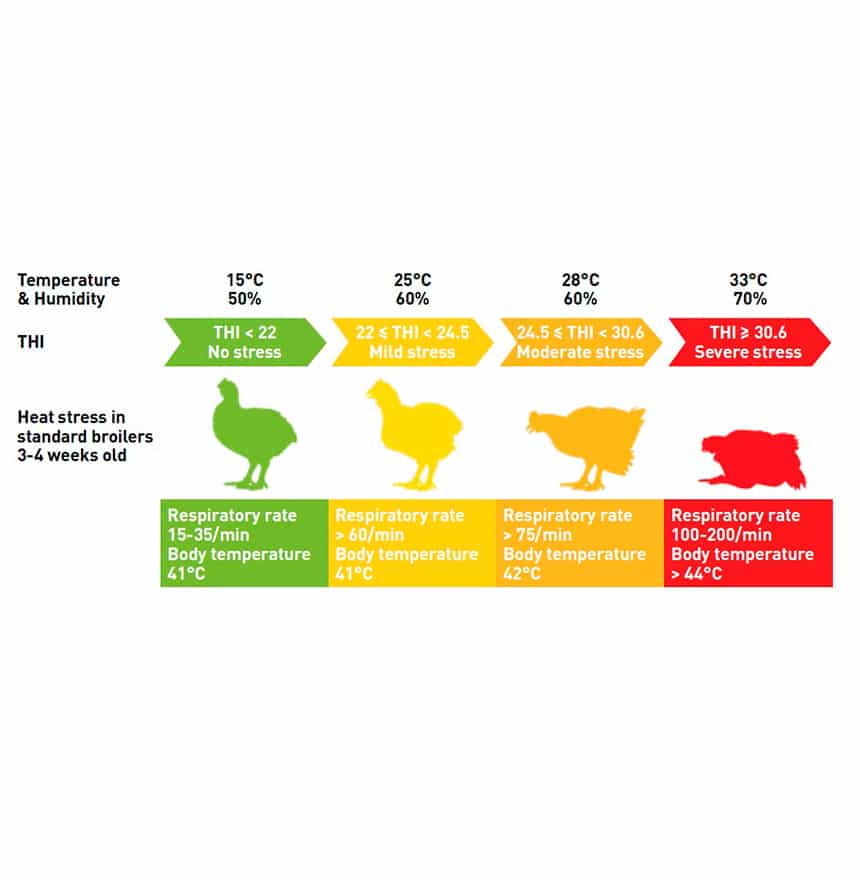


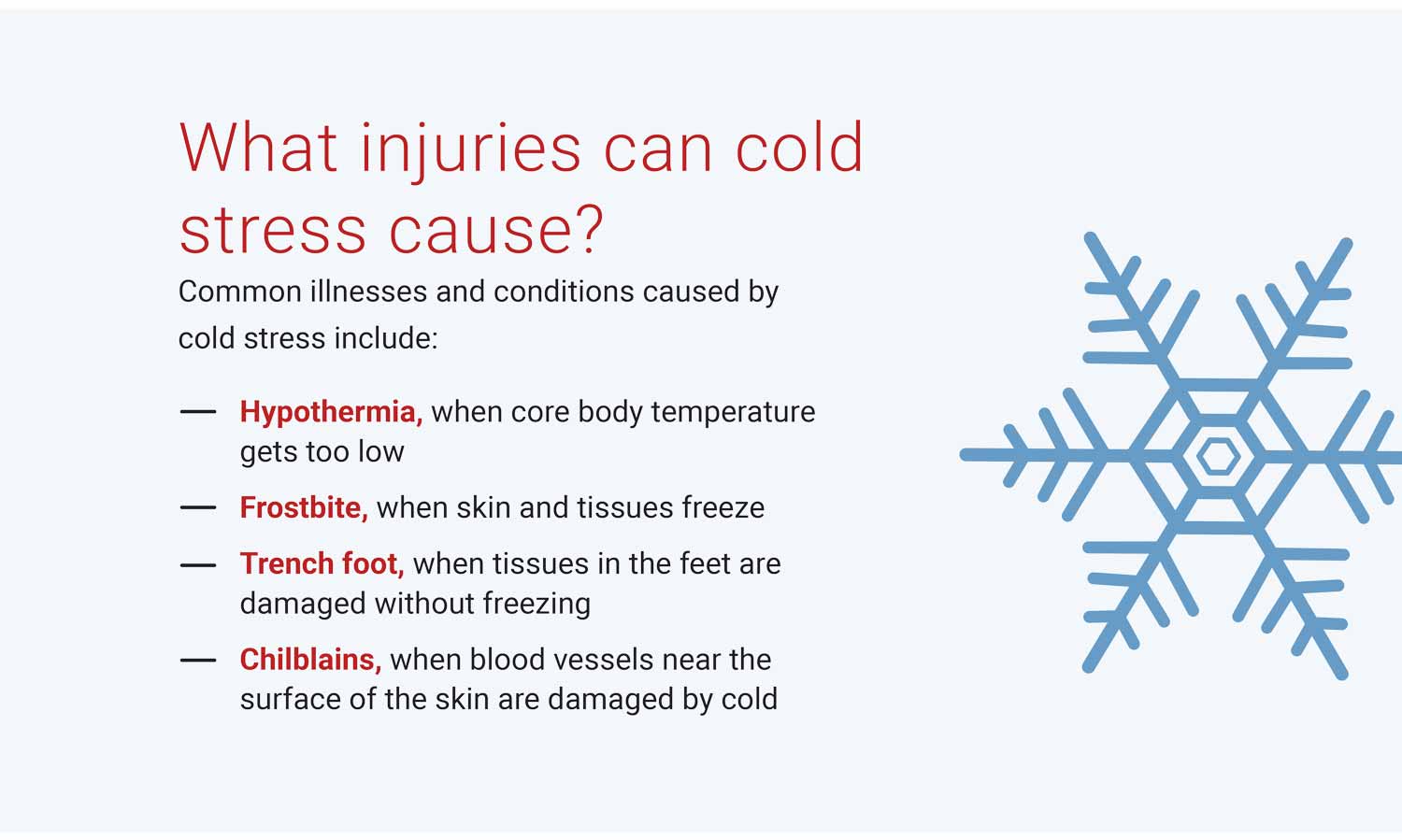

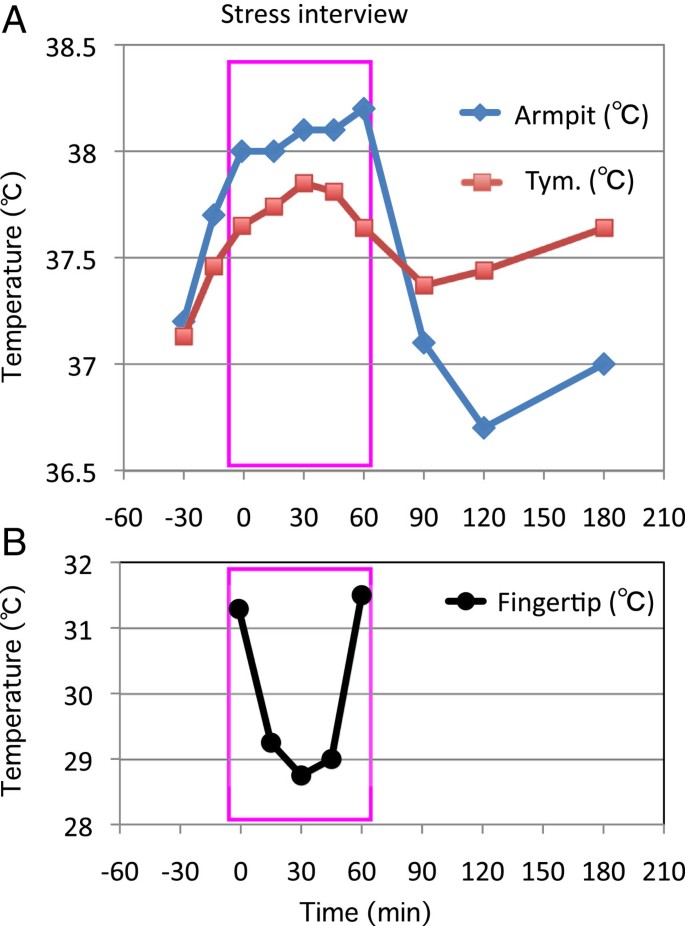



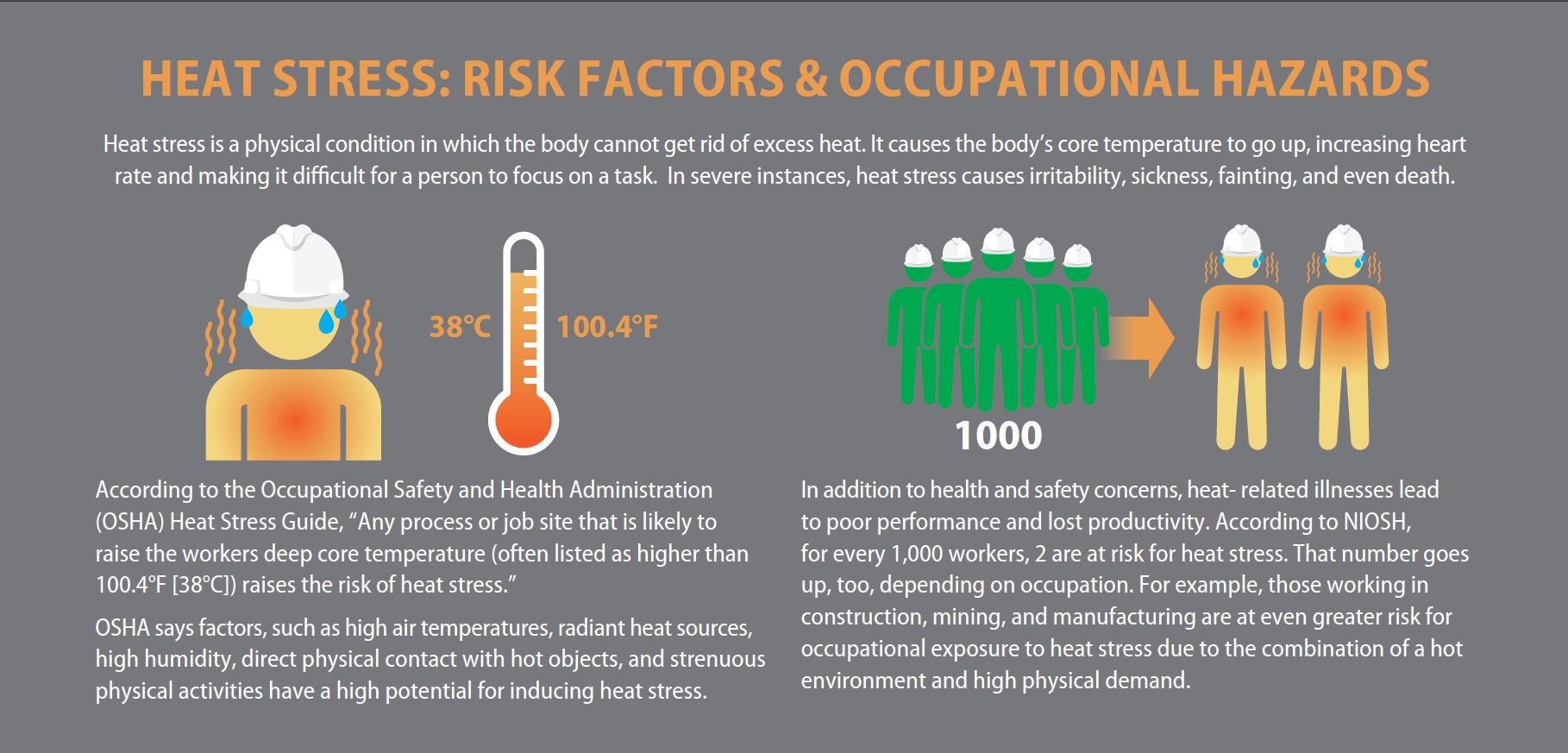
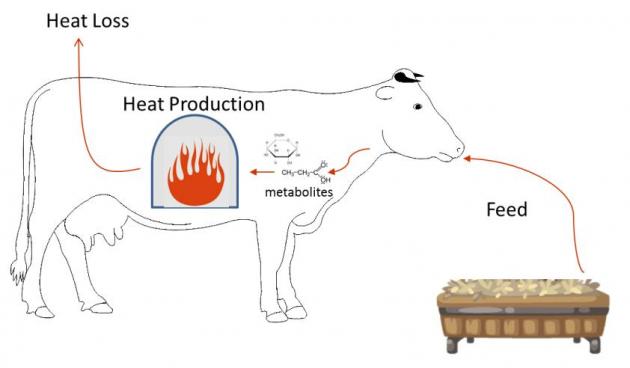





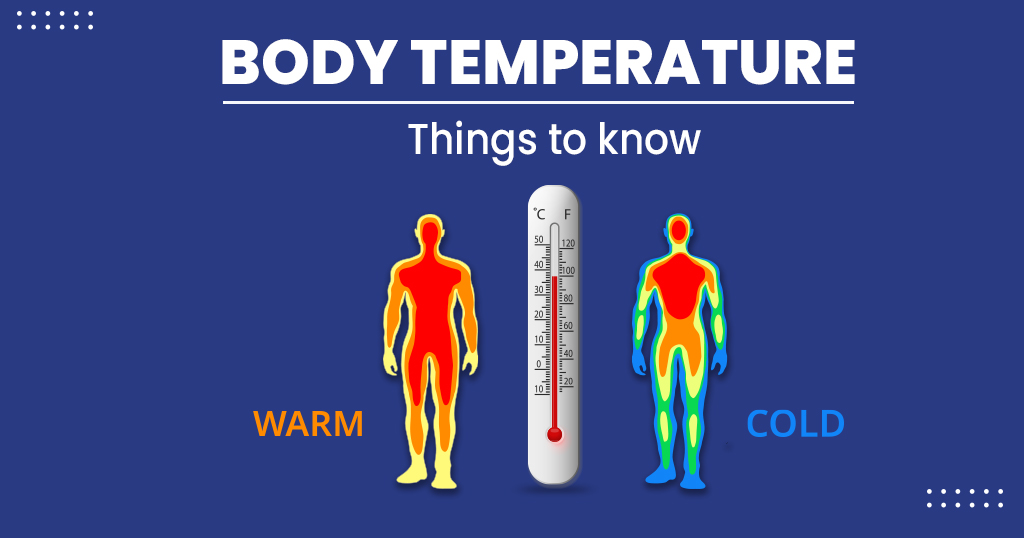







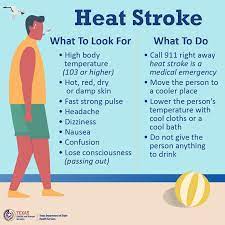
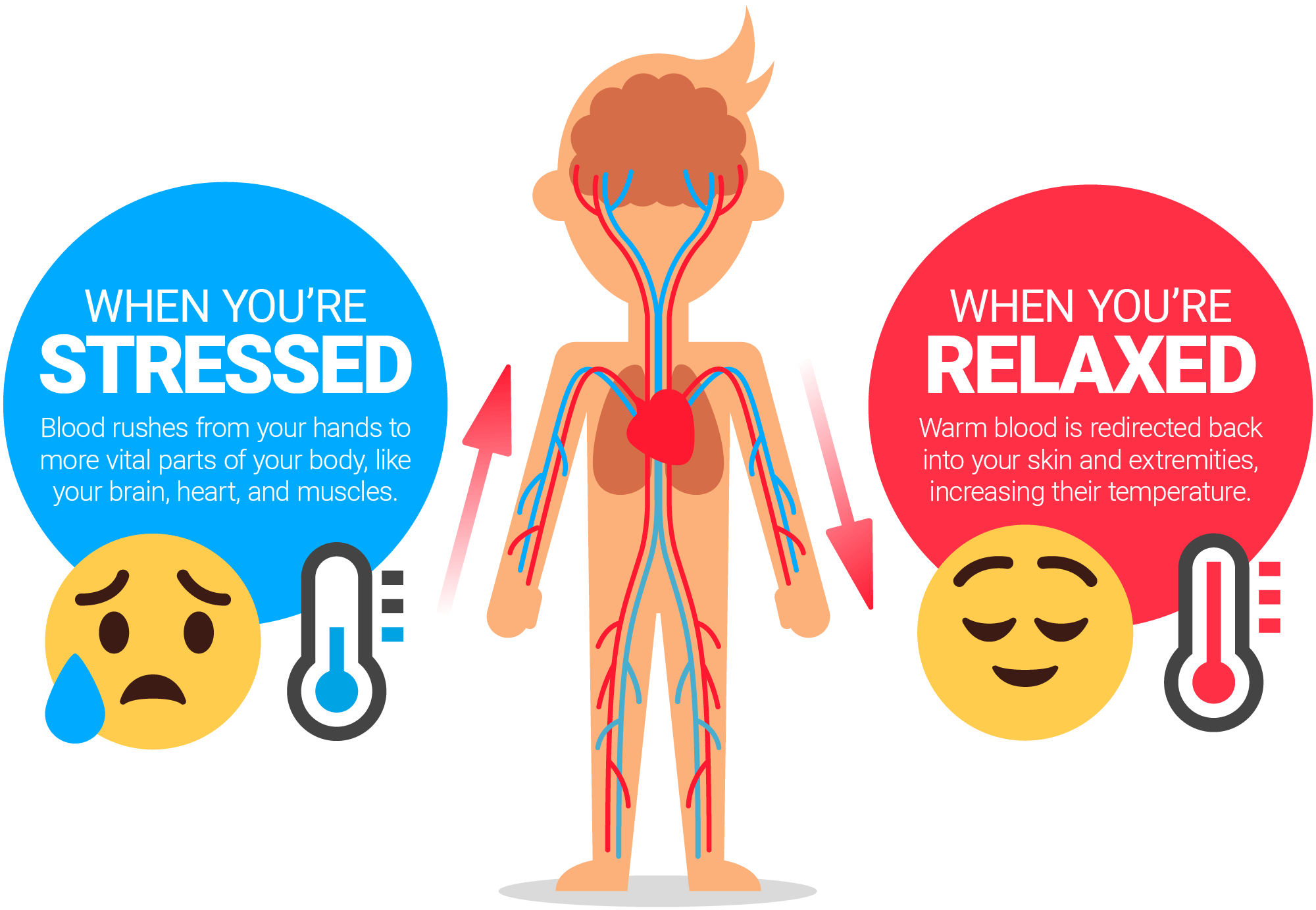


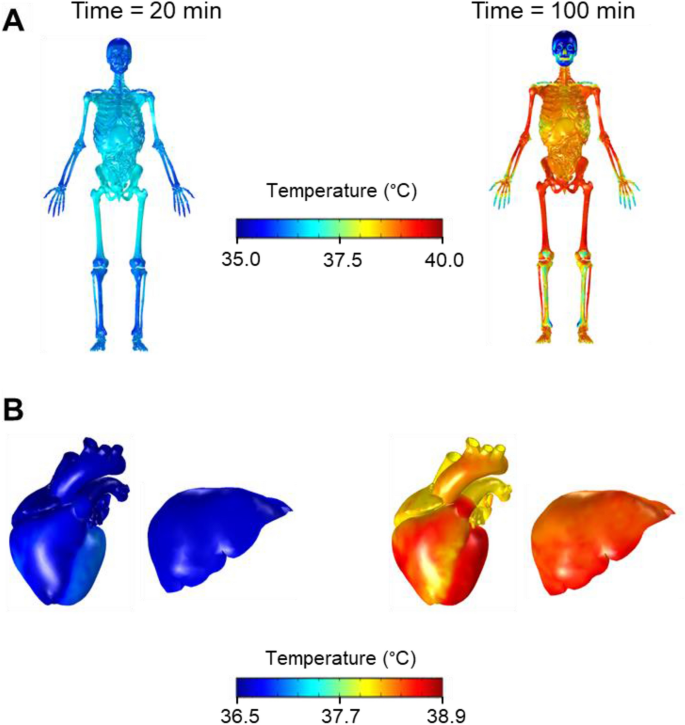
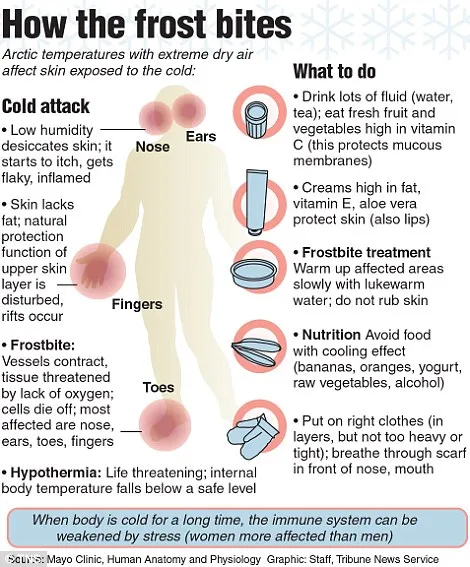





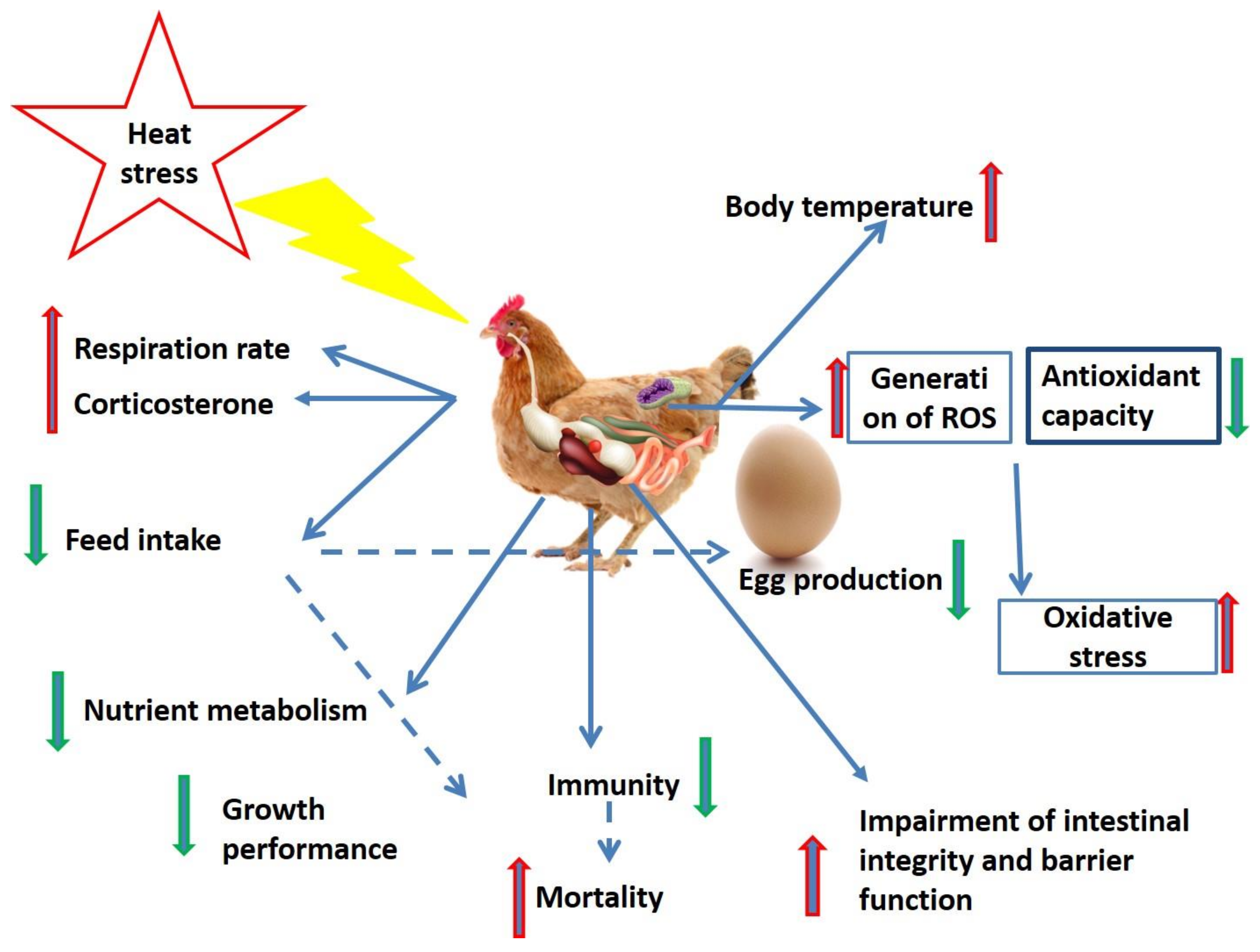
0 Response to "42 stress and body temperature"
Post a Comment